Philosophies of Judaism
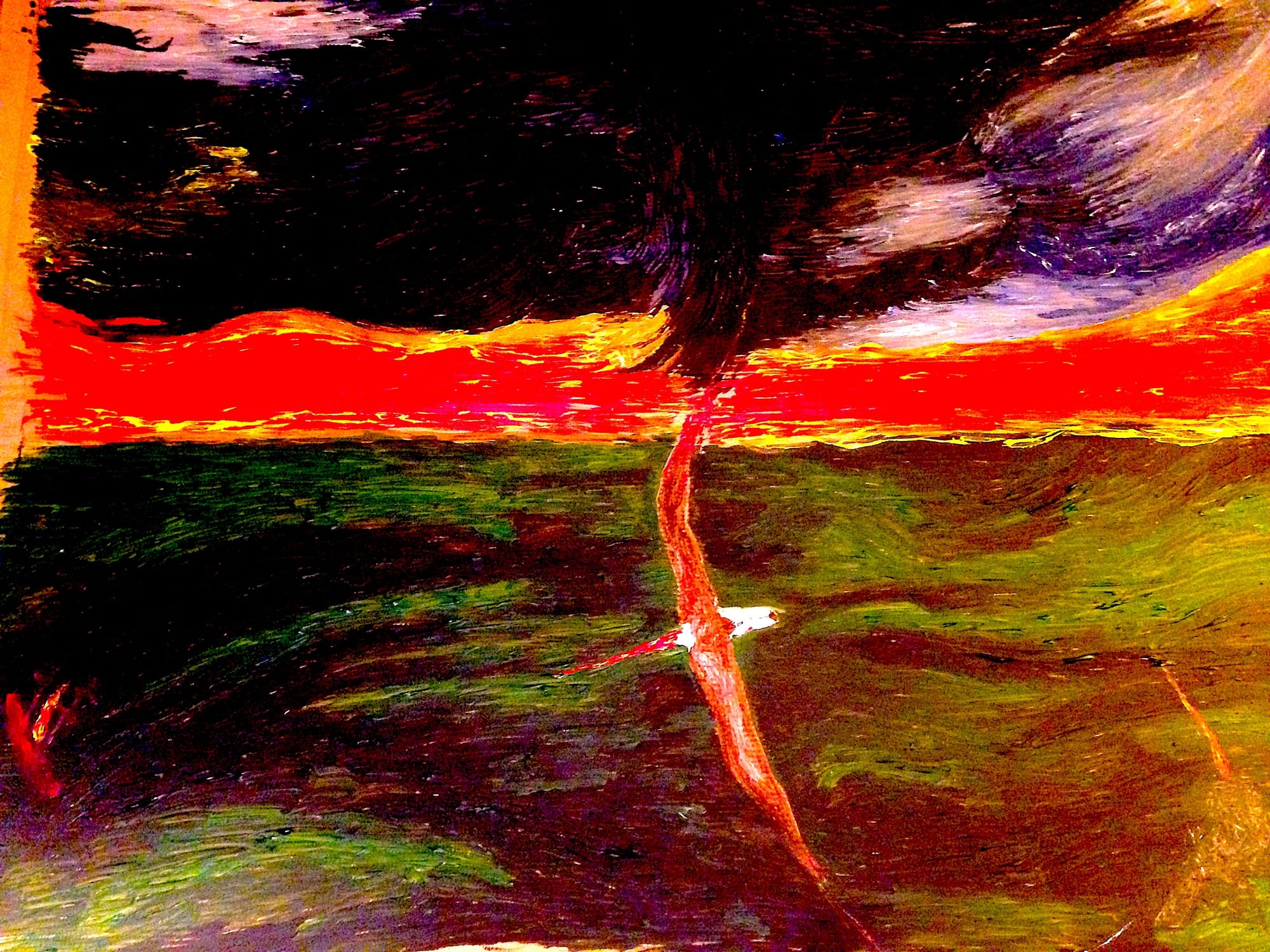
Interview by Richard Marshall

'Maimonides never thought of himself as a “Jewish” philosopher, except in the most trivial way. And not much is gained by distinguishing Maimonides from Ibn Rushd (Averroes) by denominating one as a “Jewish” philosopher and the other as an “Islamic” philosopher, when in fact their respective projects share much in common.'
'Jewish philosophy should give way to the philosophy (or philosophies) of Judaism, a deep analysis that takes normative Judaism as the explanandum—and I believe that this project will be most amenable to analytic philosophical concerns.'
'Maimonides is a pivotal figure in all this simply because he is such a fine philosopher. He may not be the most rigorous (analytic) thinker in the Jewish tradition—I think Gersonides might get the nod here—but he set the stage for what was to come. The history of Jewish philosophy, at least in the medieval period, can reasonably be divided into pre- and post-Maimonidean periods.'
'Though the greatest of the Jewish philosophers, it is important to remember that Maimonides is heavily influenced by Islamic philosophy, which in turn is influenced by Plato and Aristotle, and the Neoplatonic tradition, which itself has both Platonic and Aristotelian elements.'
'Maimonides’ reading of the Book of Job is certainly a revisionist one. We tend to read Job as an exercise in theodicy and divine justice. Job is morally upright and yet he suffers. Why? Who is to blame? Maimonides’ answer is that Job’s suffering is very much of his own making.'
'For Saadia, the appeal to “tradition” is not an anti-philosophical moment in his thought. It is not a ‘leap of faith’ in an otherwise sober, rationalist program. Rather, tradition—revealed truth that refers to the Torah in a wide sense, inclusive of Scripture and the oral (Talmudic) tradition of the rabbis—is the necessary starting point for a philosophical reconstruction of Judaism.'
'Spinoza famously analogizes the interpretation of Scripture to the interpretation of nature. Just as the natural scientist must not appeal to supernatural causes (miracles) if he wishes to provide an adequate explanation of natural phenomena, so too the biblical interpreter must not appeal to extra-biblical, preconceived religious dogmas or philosophical sources in his hermeneutical endeavors.'
'Readers may know of Ludwig Meyer as one of Spinoza's correspondents and a member of his philosophical inner circle, but few I suspect will know of him as a radical biblical critic, whose Philosophia Sacrae Scripturae Interpres(1666) precipitated considerable debate among both conservative and liberal theologians.'
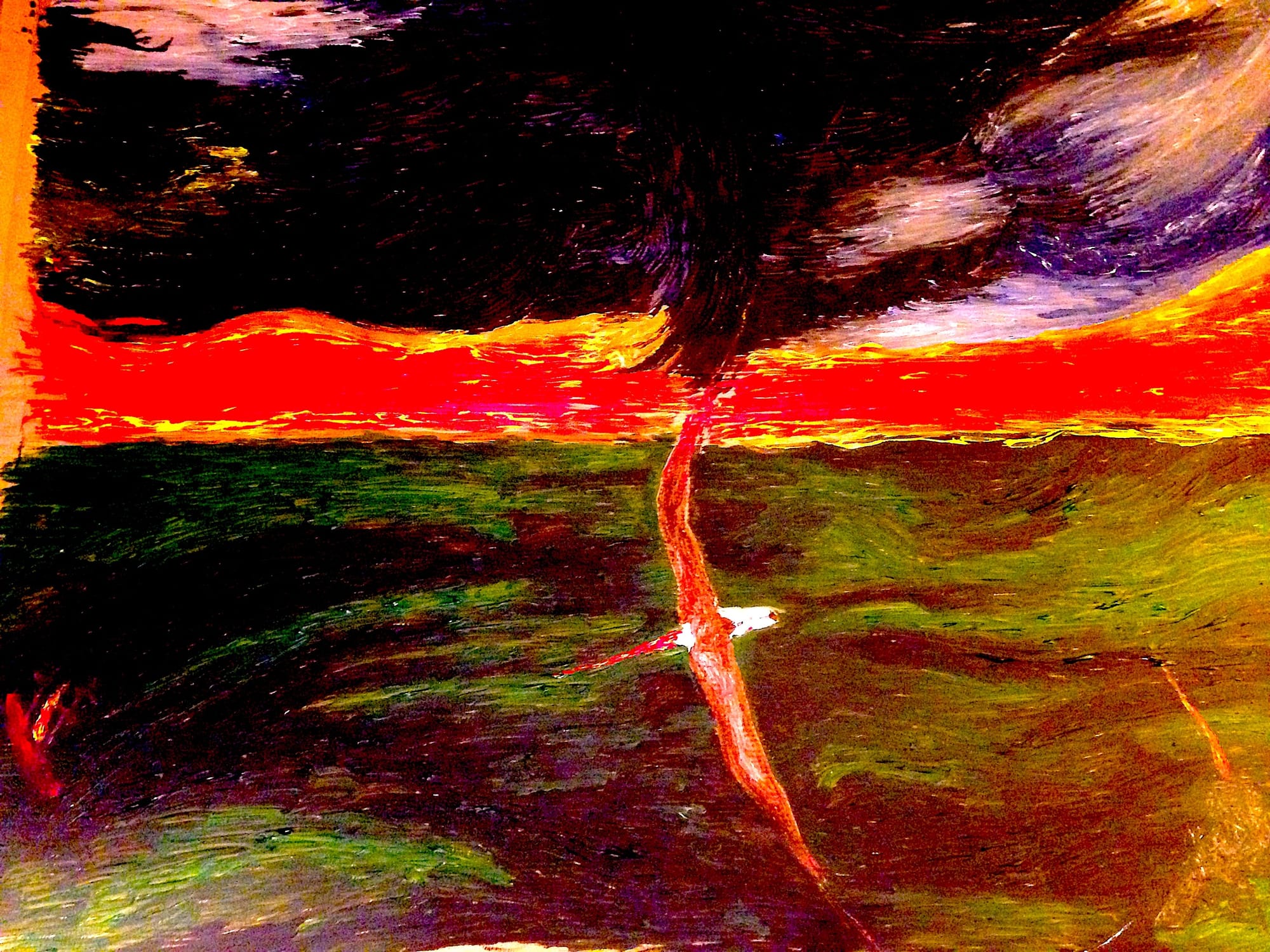
Daniel Frank specialises in Ancient Philosophy, Medieval Islamic and Jewish Philosophy, History of Political Philosophy, and Ethics. Here he discusses Jewish philosophy and why it should give way to philosophies of Judaism, commentary and explication as the Jewish tradition,Maimonedes, what makes Maimonides’ Guide of the Perplexed a practical philosophical treatise, the dispute between Guttmann and Leo Strauss, Platonic legacies, Maionedes’ moral psychology and moral philosophy, Maimonides’ revisionist reading of the Book of Job, prophecy, Saadia Gaon, Spinoza's objection to Maimonedes, Spinoza and scriptural interpretation, Ludwig Meyer, and Spinoza and politics.
3:16: What made you become a philosopher?
Daniel Frank: I grew up in San Francisco in the late ’60s—a great time and a great place to come of age. I had an inspiring high school teacher who taught a kind of Great Books sequence. I recall reading some Plato, Locke, and Marx. I enjoyed that and when I went off to Berkeley, my intention was to study philosophy. But what I was really interested in was the history of philosophy. So I began (and ended, as it turned out) with Plato. To understand what Plato was up to required Greek, so I switched from Philosophy to Classics. I continued on in Classics at Cambridge, where ancient philosophy was the option I chose. And finally I finished up in the ancient philosophy program at Pitt. Virtually all of my university teaching and research since grad school has been in ancient and medieval philosophy, and even when I do medieval Islamic and Jewish philosophy, I am extending my work in ancient, adapting Greek philosophical norms for monotheistic purposes.
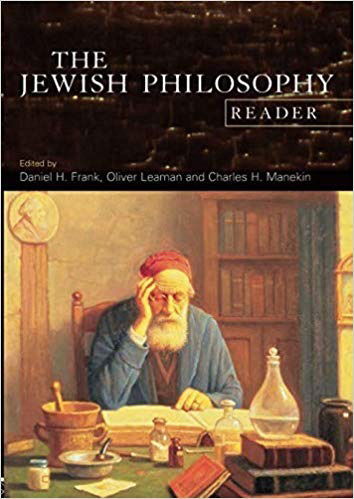
3:16: You’re interested in Jewish philosophy, and one distinctive feature of this tradition up to now at least has been that it hasn’t been done in the way the analytic tradition does things – you comment that it is more history of ideas than history of philosophy, and more continental than analytic. So what is Jewish philosophy and why do you think this is the case – why do you think there isn’t a contemporary philosopher who plays the same role as, say, Alvin Plantinga does to Christian philosophy? Is the problem about the nature of the Jewish philosophical tradition or analytic philosophy – and do you see continental philosophy to be more theological than philosophical in its orientation?
DF: There’s a lot packed into these questions, and I’ll address a few aspects. I am interested in Jewish philosophy as I am interested in Greek philosophy, namely in the arguments that certain canonical thinkers employ and the conclusions they reach. I am not an historian of ideas, and I have no training in recent Continental trends. I don’t think there is anything in the nature of Jewish philosophy that makes it more amenable to Continental philosophy than to Anglo-American analytic philosophy, which in any event is a false dichotomy. That Jewish philosophy has been inflected with Continental philosophical concerns (from Kant on) is a function of when and where the subject emerged. I wrote a chapter some years ago that argued that Jewish philosophy, understood as a special way of philosophizing, is an invention of 19thcentury German-Jewish thinkers intent on gaining a foothold in academe and worried about assimilationist tendencies that threatened the Jewish community in the wake of emancipation. Maimonides never thought of himself as a “Jewish” philosopher, except in the most trivial way. And not much is gained by distinguishing Maimonides from Ibn Rushd (Averroes) by denominating one as a “Jewish” philosopher and the other as an “Islamic” philosopher, when in fact their respective projects share much in common. Both are concerned with explicating, not so much defending, their traditions from a philosophical point of view.
Jewish philosophy should give way to the philosophy (or philosophies) of Judaism, a deep analysis that takes normative Judaism as the explanandum—and I believe that this project will be most amenable to analytic philosophical concerns. In my view, two estimable figures in this (medieval) way of understanding and doing Jewish philosophy are Julius Guttmann and Leon Roth. There has also recently come into being the Association for the Philosophy of Judaism, which is devoted to injecting the subject with analytic rigor.
I am always on the alert for parochialism and exceptionalism in Jewish philosophy. I am no fan of any kind of apologetics, so it doesn’t worry me that there is no analogue to Alvin Plantinga in Jewish philosophy. Further, I think philosophers working out of the Jewish tradition tend to focus on commentary, rather than apologetics. Even medieval Jewish kalam is a commentarial tradition.
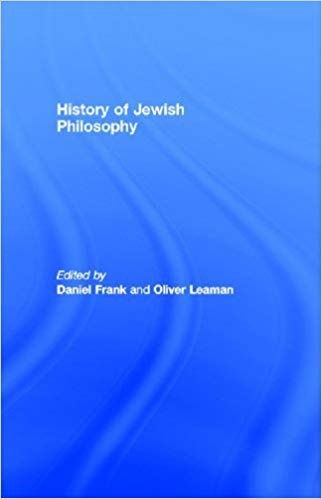
3:16: You argue that this situation should change – why, and what resources are there within the Jewish tradition to help facilitate a more sustained and involved interaction between analytic and Jewish philosophy? And why is Maimonides so important a figure in this?
DF: The Jewish tradition is, as I have just noted, a tradition of commentary and explication, with tremendous attention to detail and nuance. I think these rabbinic resources lend themselves to the kind of rigor and creativity that typifies the best in analytic philosophy and philosophy of language. In Jewish Philosophy Past and Present (2017), Aaron Segal and I have tried to illustrate this commentarial tradition in Jewish philosophy by pairing classical texts with contemporary philosophical responses to them. We hoped thereby to show what a sustained analytic engagement with these classical texts would look like. Biblical texts and commentaries on them by Saadia, Halevi, Maimonides, Gersonides, Crescas, Spinoza, and Moses Mendelssohn are themselves commented upon by prominent analytic philosophers. Ripe for rigorous treatment are topics in religious language and interpretation of Scripture, idolatry and personal immortality, divine justice, chosenness, redemption and messianism, the rationality of ritual, repentance and forgiveness, and religious pluralism. Jewish philosophy or, better, philosophizing about Judaism and the Jewish tradition has much to gain by engaging with recent trends in analytic philosophy.
You ask, why is Maimonides so important? Maimonides is a pivotal figure in all this simply because he is such a fine philosopher. He may not be the most rigorous (analytic) thinker in the Jewish tradition—I think Gersonides might get the nod here—but he set the stage for what was to come. The history of Jewish philosophy, at least in the medieval period, can reasonably be divided into pre- and post-Maimonidean periods. A focus on Maimonides and his writings will immediately lead one to deep and interesting questions in philosophy of language, cosmology, metaphysics, philosophy of law, and moral and political philosophy.
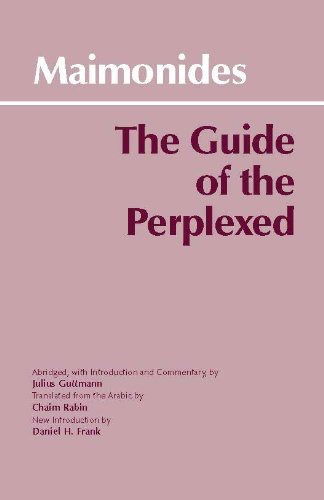
3:16: What makes Maimonides’s Guide of the Perplexed a practical philosophical treatise comparable with Plato’s Republic, Aristotle’s Nicomachean Ethics and Spinoza’s Ethics, despite the religious norms and assumptions of the author?
DF: Aristotle’s Nicomachean Ethics is obviously a work in practical philosophy, and he says as much when he notes that the goal of the treatise is to become good, not to study the good. The more interesting cases are Plato’s Republic, Spinoza’s Ethics, and Maimonides’ Guide. I do agree that all these works are works in practical philosophy, in precisely Aristotle’s sense—to attain the human good. To take the Guide first: I would argue that the trajectory of the work over its three parts, and even in each of its parts, is directed to this practical end. Topics in (what we would describe as) philosophy of language, semantics, metaphysics, epistemology, cosmology, philosophical psychology, philosophy of law, ethics, and political philosophy are indexed to this practical goal, and in so proceeding, Maimonides ’Guide can be understood as a guide for achieving the human telos, a life of rational excellence. The perplexity and mental unease of the addressee of the Guide give way in the end to the peace of mind and equanimity that attends intellectual insight.
So construed, the Guide is no more a ‘theoretical’ work than is Plato’s Republic or Spinoza’s Ethics. No one can deny that embedded in these masterpieces are rich discussions of a theoretical nature: of metaphysics, cosmology, and mind. But all such discussions in these works are not offered for their own sake, even as we today may so pursue them as such by ripping them from their contexts in the work as a whole. Rather, the metaphysics and epistemology support in ways one might consider a view of human perfection. For Plato, the best life is grounded in a deep understanding of what is real. For Plato, that is ultimately what metaphysics is for. For Spinoza, knowledge and love of God, human perfection, is grounded in an understanding of the workings of nature and its causal interconnections. For Spinoza, that is what science is for. The curricular model here is most prominently associated with the Hellenistic schools: physics is done for the sake of tranquility and achieving the human good. For Maimonides, likewise, an understanding of the nature of the created order, of the reasons for the Laws, etc. are the means whereby one overcomes perplexity and achieves the human good. The duty to philosophize and to understand the created order is an imperative enjoined on those whose goal in life can be brought about through such practices.
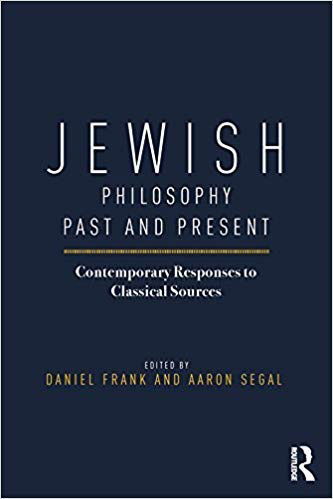
3:16: Where do you stand on the dispute between Guttmann and Leo Strauss – Guttmann saying there is no unbridgeable gulf between Athens and Jerusalem and Strauss saying there is?
DF: The question here presumes a dichotomy, whether unbridgeable or not, between Athens and Jerusalem. I deny this in the case of Maimonides. For him, there is one truth (not two), presented in different ways for disparate audiences. His project is ultimately a psychological-political one, at least as old as Plato, and the latter’s understanding that human beings are by nature of different intellectual capacities. As a result, they must be instructed in different ways for their benefit. For Maimonides, the Law is polysemous and presents the truth for philosophers and non-philosophers alike, taking into account the natural differences between them.
Earlier I noted that when I do medieval Islamic and Jewish philosophy, I am extending my work in ancient philosophy, adapting Greek philosophical norms for monotheistic purposes. Given this, my sympathies are with Guttmann in the debate you mention, at least to the extent that he understands Maimonides’ project as committed to showing the deep ‘philosophicality’ of the tradition (the Law). Maimonides is not being disingenuous here. On the other hand, if you’re a fan of Spinoza, there really is a chasm between faith and philosophy, and the Maimonidean project is deeply misconceived. In any event, as I have indicated above, the whole situation is a bit more complex. The Athens vs Jerusalem dichotomy presumes that ‘Jerusalem’ is the antithesis of reason, some sort of fideistic belief, I suppose. And then the debate is between those, like Strauss, who believe that the gulf between faith and reason is unbridgeable and those, like Guttmann, who deny the very dichotomy. I tend to agree with Guttmann, who says, “Maimonides does not see his task in creating a harmony between philosophy on the one hand and the Bible on the other, but in demonstrating the philosophical content of the Bible itself.” Given this understanding of Maimonides’ project, the very notion of “harmonizing” Athens and Jerusalem, the Law and philosophy, faith and reason is misleading. Such a project of harmonization, itself presumptive of a dichotomy between Athens and Jerusalem, has always struck me as akin to the Mother Goose rhyme Humpty Dumpty. Once a dichotomy between faith and reason is drawn, you cannot “put [them] together again.”
So construed, the Maimonidean project is misconceived. In order to save turning Maimonides into Spinoza, I tend to understand Maimonides’ philosophical project not as building bridges between distant cities, but rather as akin to an archaeological dig, in which one ‘unearths’ from the biblical text the philosophical gold. (Maimonides himself speaks of “apples of gold in settings of silver,” and Guttmann speaks of Maimonides’ “task of philosophical exegesis to uncover the meaning hidden behind [the exoteric] method of presentation and to free it from its metaphorical and sensory trappings.”) Maimonides’ hermeneutical project presumes the philosophical intelligibility of Scripture, a presumption that Spinoza took to be question begging, of which more below.
3:16: How important are Platonic legacies – including both neo-Platonism and the political philosophical tradition of Islam - to the Guide? Are these more important than Aristotelian influences?
DF: Though the greatest of the Jewish philosophers, it is important to remember that Maimonides is heavily influenced by Islamic philosophy, which in turn is influenced by Plato and Aristotle, and the Neoplatonic tradition, which itself has both Platonic and Aristotelian elements. In fact, Maimonides is easily understood as being part of the Islamic philosophical tradition. The philosophical sources for Maimonides’ Guide are many and intertwined. Shlomo Pines wrote a long introduction to his celebrated translation of the Guide on the very subject, and work on such Quellenforschung continues unabated.
Two obvious and major influences on Maimonides are Aristotle (“the chief of the philosophers,” according to Maimonides) and Farabi (whose writings “are faultlessly excellent”). No influence is greater on Maimonides than that of Aristotle. Maimonides’ entire philosophical vocabulary, in Arabic of course, is Aristotelian—matter/form, necessity/possibility, intellectual/moral virtue, etc. In this sense, he is an Aristotelian, but, as I have argued, many of his particular conclusions are not. So, for example, at the very end of the Guide he is wedded to a view of prophecy beholden to the Platonizing tendencies of Farabi, who reworks the Platonic notion of the philosopher-king in obviously un-Aristotelian ways. Indeed, the political philosophical tradition of Islam, heavily influenced by Plato, is very strong in Maimonides, and Ibn Bajja (Avempace) is a demonstrable influence in this regard.
Over the last few years, I have come to see a Stoic resonance in Maimonides. This has not been much noticed or commented upon, but consider: in understanding the human good as imitatio Dei, modeling one’s actions on the actions of an incorporeal deity, it immediately follows that Maimonides is committed to a view of human agency and action that is grounded in dispassion. In acting as God acts, we act dispassionately. In a most un-Aristotelian way, Maimonides severs the link between feeling and action, and feeling pleasure in acting virtuously.
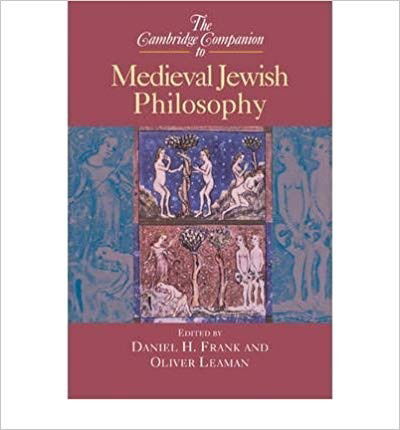
3:16: Maimonides held distinctive views about humans, but these views changed, didn’t they? How did his moral psychology and moral philosophy develop? At first he was anti-Aristotelian in his understanding of humans, saying humans were utterly distinct from animals - but later he seemed to agree that humans were rational animals after all.
Nagel once wrote, “It is because he is not sure who we are that Aristotle finds it difficult to say unequivocally in what our eudaimonia consists, and how the line is to be drawn between its constituent and its necessary conditions.” The frustratingly difficult end of Aristotle’s Ethics underscores Nagel’s point. There Aristotle presents two views of the nature of the human being, and two correlative goals of human life. Aligning with the view of the human being as identical with nous is the goal of theoria; by contrast, the life of moral virtue aligns with the human being understood as a hylomorphic compound. Aristotle clearly rank orders the former over the latter, and we should keep Aristotle’s indecision on human nature in mind as we turn to Maimonides.
Maimonides’ moral psychology appears to develop over time. In the early Shemonah Perakim (Eight Chapters), from his commentary on the Mishnah, Maimonides presents a seemingly un-Aristotelian position that underscores the idiosyncrasy of each part of the human soul and the utter distinctiveness of the human species. He writes: “There are five faculties of the [human] soul: the nutritive, the sentient, the imaginative, the appetitive, and the rational. We have already indicated… that our discourse is about the human soul because man’s nutritive faculty is not the same as the nutritive faculty of a donkey or a horse. For man is nourished by the nutritive faculty of the human soul, a donkey by the nutritive faculty of the donkey’s soul, and a palm tree is nourished by the nutritive faculty peculiar to its soul. Now, all these individuals are said to be “nourished,” but by equivocation. Similarly, man and beast are said to be “sentient,” but by equivocation, and not because the sensations of one species are the same as that of another. [In sum,] each species has its own characteristic soul distinct from every other [species]. Consequently, there arises from each [type of] soul activities peculiar to itself.” Human beings share nothing with non-human animals, not even the most ‘animalistic’ features.
Over time, however, a change in his view is to be discerned. In the Guide Maimonides adopts a less ‘exclusivist’ position, understanding human beings as sharing with non-human animals certain sub-rational faculties, but differing from them in their (unique) ratiocinative capacities. As in Aristotle, human beings turn out to be essentially rational animals. So, Maimonides’ view of the self, his philosophical anthropology, undergoes a shift in the direction of highlighting and isolating the human ratiocinative capacities as by themselves sufficiently determinative of the human essence. Indeed, the end of the Guide makes clear that the summum bonum is knowledge of God and the perfection of the rational virtues, “which teach true opinions concerning divine things.”
In emphasizing the ratiocinative capacities and the perfection of the rational virtues, Maimonides’ moral philosophy aligns with certain features of Aristotle’s moral psychology. But certain divergences should be noted. In two early works, the Shemonah Perakimand Hilkhot De‘ot, found in his commentary on the Mishnah and in the Mishneh Torahr espectively, one finds the doctrine of the mean as normative and an Aristotelian view of understanding the “ways” of God as psychological character traits. By contrast, the later and more mature Guide views matter as evil and offers Platonic/Farabian-inspired Mosaic legislative prophecy, grounded in rational perfection and knowledge of divine governance of the world, as paradigmatic. Further, in addition to these Platonizing and Neoplatonizing tendencies in the development of Maimonides’ moral philosophy, I have noted above a Stoic resonance, and it bears repeating in the present context. In the Guide the link between feeling and action, a hallmark of Aristotle’s moral theory, is severed. In acting as God acts, we act dispassionately. I do not read Maimonides as a particularly other-worldly figure, he detested mystical tendencies, but I do discern a move away from an earlier Aristotelian position on the nature of moral action and human agency.
That there is development of Maimonides’ moral psychology and moral philosophy is clear, but it is hard to characterize. Aristotelian and Platonic (and Stoic) features are intertwined. His final, considered view of the nature of the human being seems to map on to the ‘noetic’ model that Aristotle presents at the end of the Ethics, while his moral philosophy pivots away from the standard Aristotelian model. Is this a worry, a problem of conflicting loyalties to both Plato and Aristotle? Perhaps the worry is no worse than Aristotle’s, whose moral philosophy and his view of the human good as moral virtue ill consort with his own final thoughts on the nature of the human being, as outlined at the end of the Ethics.
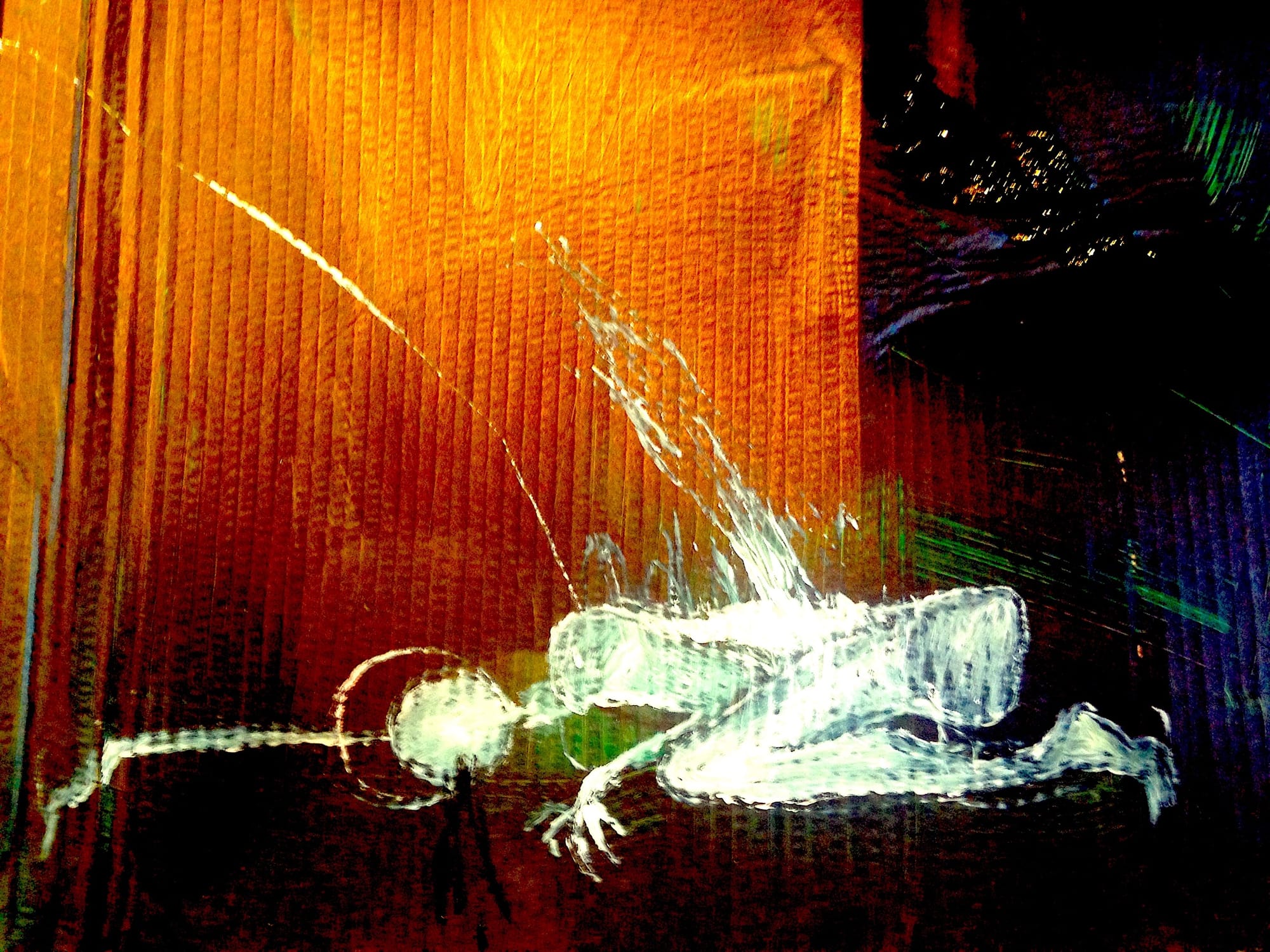
3:16: What can we learn about natural philosophy from Maimonides’ revisionist reading of the Book of Job? Is Maimonides in this reading of Job critiquing the Aristotelian moral paradigm of the phronimos? Is he saying that moral goodness is not enough to make you happy, that you’ve got to be intelligent and wise as well in some way? Can you sketch for us the Aristotelian tragic vision and then contrast it with Maimonides’?
DF: Maimonides’ reading of the Book of Job is certainly a revisionist one. We tend to read Job as an exercise in theodicy and divine justice. Job is morally upright and yet he suffers. Why? Who is to blame? Maimonides’ answer is that Job’s suffering is very much of his own making. Maimonides does not emphasize the causal role of the divine wager between God and Satan to test Job and his piety. For Maimonides, Job’s piety is not an issue, save for the fact that it is insufficient to guarantee salvation from suffering. Maimonides notes, and he’s right, that while Job is often described as “righteous,” he is never described, until the very end of the tale when God appears out of the whirlwind, as “wise.” Job has conventional views about the worth of material goods and about reward and punishment. He believes his wealth is a reward for his piety. As a result of his conventional wisdom and pedestrian beliefs, he is ripe for a fall and a revelation.
Maimonides is suggesting, as I read him, that moral goodness is not sufficient for happiness. Rather, happiness and invulnerability to fortune depend on a certain wisdom and understanding of how the world works and a subsequent realization of the actualdisvalue of material goods. In this way, I see in Maimonides’ reading of Job a critique of Aristotelian ethics and of the paradigmatic status of the phronimos. For Aristotle, happiness and moral virtue depend upon at least a modicum of material goods, and what he calls “externals,” goods not under one’s control, are necessary conditions. (Plato’s own paradigm of humanity and human happiness—Socrates—is laughable for Aristotle.) Indeed, Aristotle, as a student of Greek tragedy, weaves contingency and reversals of fortune into his narrative of human existence and human goodness. For him, the human condition hovers ineliminably between stability and fragility.
Not so, for Maimonides, as one learns from his reading of Job. Job suffers precisely because of his ignorance about what is of real value and what is a mere semblance of it. He also suffers because of a naïve presumption about the connection between virtue and reward. As noted, he is ripe for a fall and a subsequent revelation, which he experiences at the very end of the tale, as a result of which Job repents of “dust and ashes”(Job 42:5-6; cf.Guide 3.23), i.e. material goods. In the end, Job becomes wise, he now understands that his suffering was due to a lack of such (salvific) wisdom. Maimonides notes that “[divine] providence watches over everyone endowed with intellect proportionately to the measure of his intellect.” (Guide3.51). Job becomes invulnerable on account of his wisdom. In the final analysis, perhaps we might think of Job as a Stoic sage. It’s a brilliant, and revisionist, reading of a canonical text, that is also in its own way a critique of Aristotle and his views about moral virtue and the relative value of material goods.
3:16: For Maimonides, prophecy is the highest good and Moses is the human ideal. So what is Maimonides’ understanding of prophecy, and what roles do the intellect and the imagination play in prophecy?
DF: It is true that prophecy is the highest good for Maimonides. In his view Mosaic prophecy is unique, and Moses’ role is nonpareil. For Maimonides, Mosaic prophecy precisely is the giving of the Law, and so construed one can immediately see the political dimension of prophecy. I mentioned earlier the influence of Plato, via Farabi, in this regard. For Maimonides, Moses is a philosopher-king. This entails that his power and authority depend upon intellectual insight. In this regard, what Moses doesn’t know is as important as what he does know. His knowledge of God is limited, by human necessity, to God’s actions, and such knowledge is of God’s creation and governance of the world. So, Moses’ prophecy, his giving of the Law, is grounded in cosmology and physics. In fact, the Law is part of divine creation, God’s plan for the world. Formally, as I have recently argued, Moses’ giving of the Law is analogous to divine creation. Both bring order out of chaos, giving shape and form to matter. Analogous to and part of divine creation of the world from formless matter, Moses offers the Israelite slaves freed from Egypt a law meant to free them from the (psychological) bondage they still carry with them. They accept the offer, and in taking on the Law, a nation is thereby created from a rabble of slaves.
Prophecy is for Maimonides an intellectual achievement of the highest order, which carries with it political consequences. In the case of Mosaic prophecy there is no imaginative content to the revelation, but this is relaxed for the other prophets, who instruct with similes and metaphors. It is this latter aspect that is highlighted by Spinoza in his robust critique of biblical prophecy. He understands the prophets as gifted with imaginative, not intellectual, brilliance. For Spinoza, the prophets are not philosophers, as Maimonides held. This critique of biblical prophecy is of a piece with Spinoza’s sharp division between faith and philosophy—as the prophets are not philosophers, so faith (traditional religion) has nothing to do with philosophy. By contrast, Maimonides reveals the deep philosophical underpinnings of Scripture by explicating the Law of Moses, revealing its rational foundations in the divine creation and plan for the world.
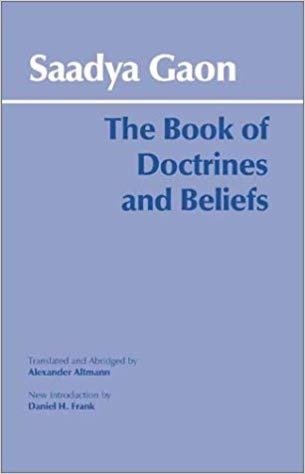
3:16: Saadia Gaon may well be the one who started the Jewish philosophical tradition, and his approach was a species of kalam, which is a Muslim practice. Can you tell us about this interesting fusion of Islamic with Jewish philosophy? Does the practice suggest that orthodoxy and philosophy were allies rather than at odds at this time, and that it was out of this that naturalised, empiricist tendencies emerged in Jewish theology and philosophy? Finally, does Saadia’s commitment to ‘tradition’ erode the naturalising, philosophical tendencies he seems to support?
DF: Saadia (early 10thcentury) is not the very first medieval Jewish philosopher, but he is amongst the first. He was a polymath, wrote a long commentary on the Book of Job, and his philosophical magnum opus, The Book of Doctrines and Beliefs, is a philosophical defense of, an apology for, traditional (rabbinic) teachings on creation, divine unity, prophecy, human freedom, immortality, resurrection, and reward and punishment. It is a work of Jewish kalam, but it must be stressed that, though kalam had its detractors—Maimonides being one of them—the work is not by its nature anti-philosophical. Saadia uses philosophical argument to support traditional beliefs. There is a duty to philosophize, and Saadia writes, “It cannot be thought that the sages should have wished to prohibit us from rational inquiry, seeing that our creator has commanded us to engage in such inquiry in addition to accepting the reliable [rabbinic] tradition.” Theology and philosophy go hand in hand.
For Saadia, the appeal to “tradition” is not an anti-philosophical moment in his thought. It is not a ‘leap of faith’ in an otherwise sober, rationalist program. Rather, tradition—revealed truth that refers to the Torah in a wide sense, inclusive of Scripture and the oral (Talmudic) tradition of the rabbis—is the necessary starting point for a philosophical reconstruction of Judaism. Saadia is a skeptic, or at least pretends to be. For him, the sources for human error are many: the senses may lead us astray, reason may fail us, and impatience may stand in the way of soberly weighing the evidence. Given such manifest human weakness, divine goodness offered humanity the truth through revelation. But, again, that’s just the beginning of a project of speculation and interpretation of the prophetic message. I have likened this project to working through the answers one finds at the end of a study guide. One will work backward from conclusion to premises, and perhaps in the end one will attain knowledge. So, I see Saadia’s project, apologetic as it is, as a philosophical one throughout, though Maimonides thought its interpretation of the tradition not philosophical enough.
3:16: Spinoza raises an objection to Maimonides’ thought that Maimonides raises against Saadia, and it’s an objection that it seems to me generalises against all philosophy of religion that assumes the inerrancy of religious doctrine and refuses to speculate from non-religious assumptions. What did Spinoza argue against Maimonides and isn’t his argument fatal for any philosophy of religion – and therefore fatal for a Jewish philosophical tradition that does have religious belief at its heart?
DF: An historical irony is that Maimonides, who in his day was too hot to handle—the first book of his Mishneh Torah (Sefer ha-Madda) as well as the Guide were incinerated at the behest of French rabbinic authorities in 1232/3—becomes for Spinoza the representative of all that is wrong with traditional religion. Spinoza thinks that the entire Maimonidean project is question begging, assuming the truth and inerrancy of Scripture. I understand Spinoza’s point, but I am not sure it hits the mark. Maimonides is not a religious apologist. In fact, that’s his own charge against Saadia, and, as I have noted above, I am not sure that that charge is quite as devastating against Saadia as Maimonides himself imagines. In any event, Spinoza’s charge against Maimonides presumes that the latter assumes the truth of Scripture, and does not take Scripture as something to be evaluated just like any historical text. By contrast, Spinoza takes Scripture to be an historical text, written at a certain time, in a certain place, by certain (human) authors, and bereft of any divine significance and meaning. As such, it should be sensitive to and evaluated by reference to historical standards.
Spinoza famously analogizes the interpretation of Scripture to the interpretation of nature. Just as the natural scientist must not appeal to supernatural causes (miracles) if he wishes to provide an adequate explanation of natural phenomena, so too the biblical interpreter must not appeal to extra-biblical, preconceived religious dogmas or philosophical sources in his hermeneutical endeavors. At one with Protestant theologians of the day, Spinoza demands that Scripture be interpreted sola Scriptura, with attention to all philological and historical details. For Spinoza, (biblical) truth and meaning are indexed to context and history, nothing else.
I am not sure Spinoza’s charge of question begging is fatal for Maimonides and the latter’s project of biblical interpretation. (I will beg off responding as to whether it is fatal for “any philosophy of religion.”) As noted above, Maimonides presumes the rational intelligibility of the tradition. But this leaves the interpretive understanding of the tradition wide open. Nothing is taken for granted or assumed, save that the (religious) tradition is meaningful and worthy of speculation. In fact, throughout the Guide Maimonides proceeds to understand and explain the tradition with close attention to historical and psychological reality, as any empiricist might. So, for example, Maimonides spends a lot of time in the third part of the Guide laying out the reasons for the Laws. Details aside, the reasons for the Laws are clarified by a deep empirical study of human nature and its weaknesses. More specifically, the laws governing divine sacrifices (korbanot) are explained by reference to the psychological state of the recently freed Israelite slaves. Nothing in his exhaustive discussions of the Laws is taken for granted; on the contrary, Maimonides patiently sifts the evidence and the biblical text to understand why one must not mix milk and meat, for instance. For Maimonides, obedience to the Laws is not grounded in divine command, but in understanding the teleological trajectory of the Laws and how they are supportive of community and human well-being. That said, it is not hard to see how and why such an etiological analysis of the Law worried some traditionalists, on account of its antinomian potential. After all, the (Anselm-like) argument goes, if one doesn’t find a satisfactory reason for one or another law, then one’s commitments may well flag.
So, Spinoza notwithstanding, I don’t think Maimonides is easily convicted of question begging. Even if he assumes the truth and intelligibility of Scripture, his philosophical project is to provide an etiological analysis of the tradition, its foundations, customs, and laws.
3:16: What distinguishes Spinoza as a biblical interpreter from his contemporaries such as Ludwig Meyer and both conservative and liberal biblical interpreters? What does this tell us about his own philosophical position and how he understood philosophy? Is Spinoza arguing that philosophy and natural science are, if not identical, very close cousins?
DF: Readers may know of Ludwig Meyer as one of Spinoza's correspondents and a member of his philosophical inner circle, but few I suspect will know of him as a radical biblical critic, whose Philosophia Sacrae Scripturae Interpres(1666) precipitated considerable debate among both conservative and liberal theologians. Most importantly, it was this very work of Meyer that motivated a response from Spinoza himself, and this response is none other than the Tractatus Theologico-Politicus(TTP), published anonymously in 1670.
As the very title of his book makes clear, Meyer's radical biblical hermeneutic enthrones philosophy as the criterion by which biblical ideas are to be evaluated and truth is to be revealed. This program is hardly novel (Maimonides and other philosophically-minded theologians proposed to reinterpret Scripture when it offended against philosophical intelligibility), but it nevertheless stood as a general challenge to the whole Christian tradition of Scriptural interpretation, and in particular to almost 150 years of development in Protestant ways to approach Scripture.
As noted, Protestant theology emphasized (against Rome) the autonomy of Scripture (sola Scriptura)—that Scripture could be approached directly by the lay reader and needed no external source or authority, ecclesiastical or philosophical, to ground, explain, or enforce it. Scripture is a revealed text that stands on its own, and the “conservative” Protestant response to Meyer by theologians such as Maresius and Serarius is in large measure offered in the name of simple faith, a gross distinction between secular wisdom and revealed truth, and the uniqueness and radical contingency of Christianity and the Bible. From the “liberal” side (represented by van Welthuysen and Wolzogen), the Protestant response to Meyer and his philosophical interpretation of Scripture is to insist that the text is not in fact a philosophy text, but rather an historical one that requires the skills of an exegete sensitive to language and contextual nuance to wrest meaning from it. In this debate, liberals can be seen to counter conservatives in the name of history and comparative analysis, while both liberals and conservatives counter Meyer's a-priorism, with its potential to radically undermine religious authority. Nevertheless, disagreements aside, all parties, including Meyer, share the view that the Bible is a repository of divine truth, and that it is the job of the interpreter of the text—philosopher, historian, or simple believer—to reveal the truth in its pristine form.
Enter Spinoza. What distinguishes Spinoza from Meyer and the latter’s Protestant critics on the left and the right is his insistence on understanding and interpreting the Bible as (just) an historical text and consequently as one without any divine significance and meaning, a wholly human text written by human beings a long time ago. Though beholden to conservatives for the strong dualism between faith and reason (religion and science) and to liberals for invoking history in any viable interpretation of Scripture, Spinoza is finally at odds with all in denying the Bible any authoritative status as a revealed text. Giving a new twist to the Protestant notion of the autonomy of Scripture (sola Scriptura), that the text must be understood in its own terms, Spinoza counters Meyer and his evaluation of the Bible against the external canon of philosophical reason, counters conservative theologians and their emphasis on subjective faith and the ahistoricity of the Bible, and finally counters liberal theologians in their misguided attempt to mine an historical text for deep, timeless truths.
In effect, Spinoza offers a “natural history of religion.” We have already noted a famous section of TTP vii that says, “the method of interpreting Scripture is scarcely different from the method of interpreting nature, and is in fact in complete accord with it. For just as the method of interpreting nature consists essentially in composing a natural history from which we can infer definitions of the things of nature as deriving from assured data; so also for the interpretation of Scripture it is necessary to provide its authentic history, and by drawing logical consequences from that, as from assured data and principles, to infer the intention of the authors of Scripture.”
For Spinoza, the analogy between the natural scientist and the biblical interpreter is a close one. Just as one comes to understand nature from nature herself (inductively and empirically), so must one come to understand and interpret Scripture from Scripture itself. Scripture stands on its own (sola Scriptura), as the conservatives strenuously suggested, but its meaning—not to be confused with any sort of extra-historical, timeless truth—is to be inferred by close philological and historical analysis. Spinoza is amongst the first practitioners of an historical-critical method of biblical scholarship.
Spinoza’s method for interpreting Scripture is certainly empirical, explicitly modeled on Baconian science. Nevertheless, the history books invariably present Spinoza as one amongst the Rationalists, wedded to an a priori methodology in the Ethics. Is there a tension here? Maybe so, but consider this: in Spinoza’s case, both biblical scholarship and philosophy proceed in an utterly dispassionate and impersonal way. In the TTP, he adopts the stance of an (objective) historian and critic of the revealed text, as he strips it of its traditional religious significance. And in the Ethics, the geometric method, the metaphysical necessitarianism, and his construal of the summum bonumas the intellectual love of God, all allow Spinoza to distance himself from the truths he is conveying. In sum, a studied scientism is pervasive throughout his work.
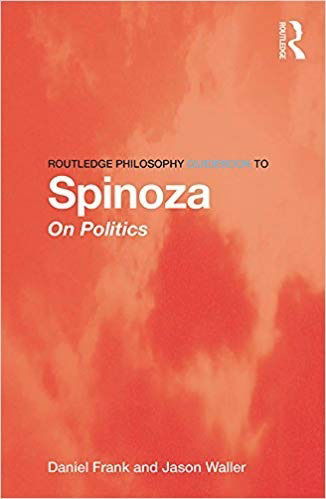
3:16: Spinoza challenged the dominant views of political order and the role of religion of his day – you say he rejected an approach to political thinking that had dominated Europe since the fall of the Western Roman Empire. So can you sketch for us the salient features of this ‘Christendom Model’ he rejected, and what had begun to make it unworkable by the time we get to Spinoza’s time? Further, how did Spinoza’s Liberal Republicanism attempt to solve what you call the “Theological-Political Problem,” which concerned itself with the problems of political legitimacy and cooperation without agreement? Was he the first person to argue for a secular, liberal and tolerant state?
DF: For a millennium or more the Church provided a framework for political order, but by the 17thcentury that foundation lay in ruins. In the wake of the Reformation, religious warfare devastated Europe. The Thirty Years War (1618-48) killed off nearly a third of the population of Germany. What could replace the Church as a stabilizing political force? This is the “Theological-Political Problem” that Spinoza sets himself in the TTP. The Problem addresses political legitimacy (the grounds for legitimate rule) and political agreement and cooperation (the establishing of cooperative, political life, without deep agreement on fundamental issues, and in the absence of a foundational religious entity, namely, the universal Church). In our book, Spinoza on Politics(2016), Jason Waller and I point to (what we call) Spinoza’s “liberal republicanism” as his way of dealing with the Theological-Political Problem. Our view of Spinoza’s political philosophy is revisionist, insofar as it distances him from Hobbes’ social contract theory, which grounds political legitimacy in a foundational contract among cooperating individuals and the sovereign’s expected role as protector of the peace. While Spinoza no less than Hobbes grounds politics in a pessimistic view of human nature and the impossibility of deep human transformation, Spinoza looks to the (democratic) state to provide the framework for political legitimacy and stability.
Through its participatory institutions, including religious institutions, the state confers on its citizenry political freedom, by inculcating the “thin” (universal and liberal) virtues of tolerance, justice and obedience. If the state is successful in its goal of establishing such values and norms, then peaceful, associative living will be achieved, and will be achieved without deep agreement on fundamental issues, and in the absence of a monolithic religious authority. A principled pluralism will obtain; citizens will agree to disagree. It should be noted that Spinoza, like Hobbes and Rousseau, finds a role for the Church to play in the state. Though subservient and obedient to the state, the Church will in its own way promote the civic agenda by preaching its traditional message of justice, charity, and obedience to God. These traditional teachings are retrofitted to a secular political agenda, in support of civic peace and stability.
I don’t know if Spinoza was the first to argue for a secular, liberal and tolerant state (by the way, Locke read Spinoza before he published his own Letter concerning Toleration [1689]), but some historians see his political agenda as a “radical enlightenment,” a century before the 18th-century French Enlightenment.
3:16: Is Spinoza part of the Jewish philosophical tradition, given that he distanced himself from the Jewish religion?
DF: Harry Wolfson, a notable historian of philosophy, described Spinoza as “at once the last of the medievals and the first of the moderns.” (He also bookended medieval religious philosophy with two Jews, Philo of Alexandria and Spinoza.) There is at least this truth in Wolfson’s claim: if modernity is understood by reference to an anti-religious scientism, then Spinoza more than Descartes gets the nod for inaugurating it. For the same reason, it is Spinoza who dramatically calls into question the theocentric perspective of the medieval project of understanding the world order and the place of humans in it.
Spinoza wrestles with the role of religion and religious institutions in modern life and in the secular state. Bestriding modernity like a colossus, I certainly think Spinoza is part of the Jewish philosophical tradition, and precisely because he is such a vociferous critic of it. After all, the TTP critically engages such canonical themes as biblical prophecy, divine election, the Law, miracles, biblical hermeneutics, and Jewish history. Regardless of his particular views, they are, and must be, part of the Jewish philosophical tradition, part of the tradition of defining and understanding Judaism and its beliefs, practices, and history. Though excommunicated from his native community, though branded an atheist, though vilified by Jews from all sides of the religious spectrum, Spinoza insisted that “freedom to philosophize may not only be allowed without danger to piety… but cannot be refused without destroying… piety itself.” By the way, Maimonides would not disagree.
3:16: And for the curious readers here at 3:16, are there five books other than your own that you can recommend that will take us further into your philosophical world?
DF: Permit me to mention six books or anthologies, which I return to again and again in my teaching and research:
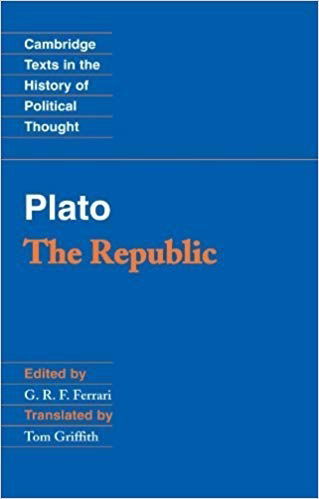
Plato, Republic
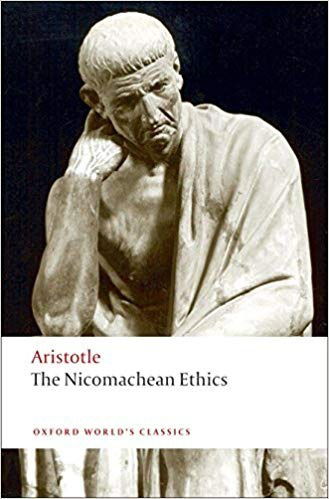
Aristotle, Nicomachean Ethics
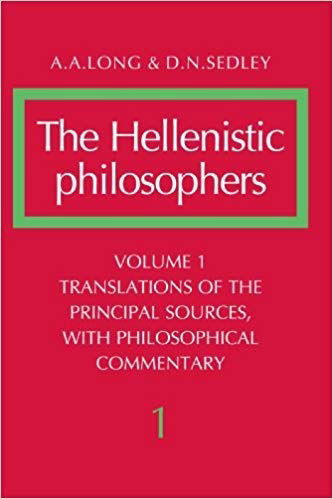
For Stoicism: The Hellenistic Philosophers (translated by A. A. Long and D. Sedley)
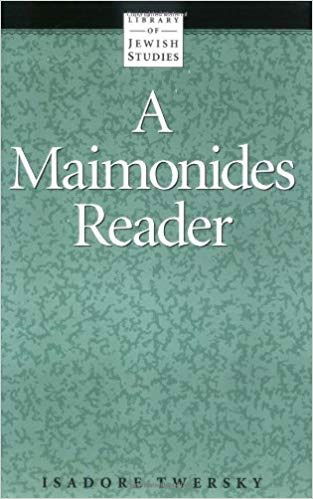
For Maimonides: A Maimonides Reader (edited by I. Twersky) (The Guide of the Perplexed is translated by S. Pines)

Spinoza, Tractatus Theologico-Politicus
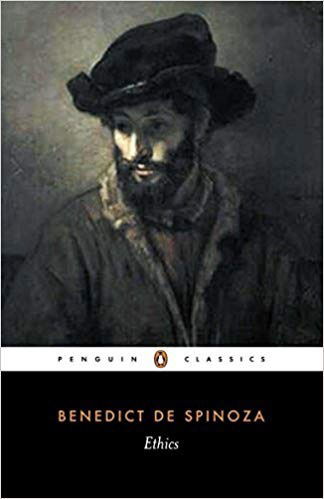
Spinoza, Ethics

ABOUT THE INTERVIEWER
Richard Marshall is biding his time.
Buy his new book here or his first book here to keep him biding!
End Times Series: the index of interviewees